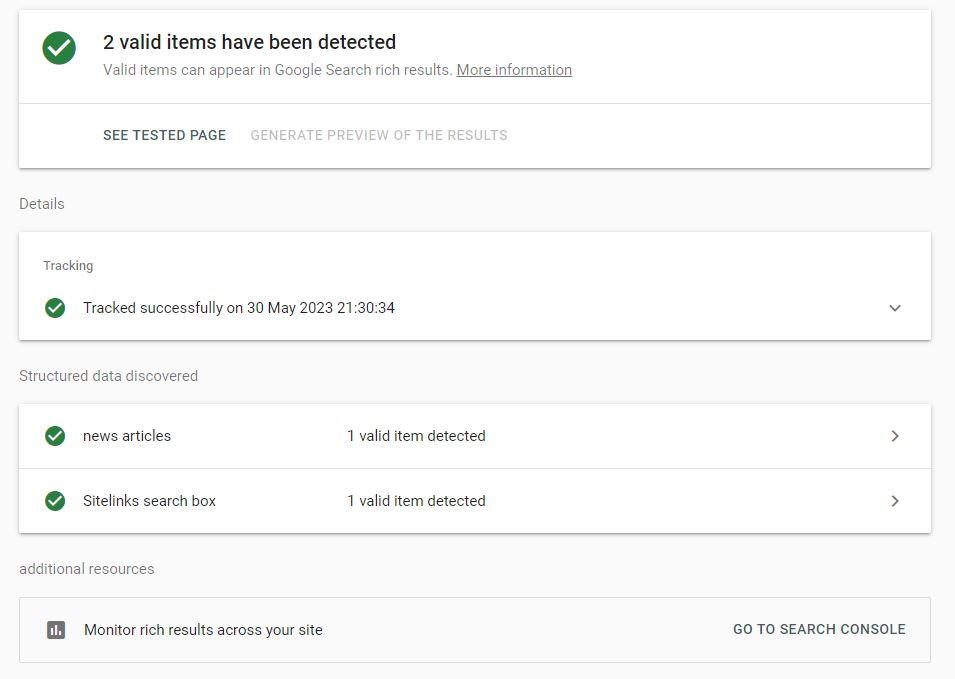A Definitive Guide to Boosting Small Business Rankings Through Technical SEO Tactics
As a leading digital agency committed to delivering exceptional online solutions, we understand the critical importance of technical SEO optimisation in boosting Google rankings for professional services businesses.
In this comprehensive guide, we will delve into the world of technical SEO, exploring its significance, common tools for optimisation, key technical issues that might affect search engine rankings, and practical steps for small businesses to ensure their websites are technically optimised for SEO success.

Table of Contents
What is Technical SEO and Its Importance for Small Businesses?
Technical SEO involves optimising a website for search engines’ algorithms. This is of paramount importance as it enables search engines to comprehend and index your website accurately. Moreover, technical SEO optimisation plays a pivotal role in enhancing click-through rates and organic search traffic, resulting in greater online visibility and improved search rankings.
To achieve technical SEO excellence, it is crucial to optimise various aspects of a website, including its architecture, code, loading speed, and mobile responsiveness. At Agile Digital Agency, we recognise the profound impact that technical SEO can have on a small business’s online presence, and we are dedicated to empowering businesses with the knowledge and tools needed for SEO success.

Essential Tools for Technical SEO
For small businesses seeking to perform technical SEO, a range of powerful tools can facilitate the process. Among the most effective tools are:
- Screaming Frog: Screaming Frog is a versatile website crawler that provides valuable insights into a website’s SEO performance. It offers in-depth analysis, identifying potential issues related to URLs, meta tags, headers, and more. With its comprehensive reports, small businesses can uncover optimisation opportunities and rectify existing problems.
- Google Search Console: Google Search Console is a free, indispensable resource for website owners. It enables them to monitor their website’s indexing status, track search performance, and receive critical notifications about potential issues. Utilising Google Search Console helps small businesses identify and address technical SEO problems to enhance their online presence.
- Bing Webmaster Tools: Bing Webmaster Tools provide insights and tools to optimise your website’s performance on the Bing search engine. It offers features such as site diagnostics, keyword research, and crawling data, enabling you to fine-tune your SEO strategy specifically for Bing’s algorithms. Additionally, the Clarity tool, a user behaviour analytics tool by Microsoft, can complement your technical SEO efforts. Clarity provides detailed insights into how users interact with your website, offering features like heatmaps, session recordings, and more.
- Ahrefs, SEMrush, and Ubersuggest: These powerful SEO suites offer comprehensive technical audit capabilities, allowing small businesses to analyse backlinks, competitor performance, and keyword rankings. By leveraging these tools, businesses can gain valuable insights into their SEO strategies and make data-driven decisions to improve their rankings.
Read also:
Common Technical SEO Issues Impacting Search Rankings
The following are some common technical SEO issues that can negatively affect a website’s search engine ranking, with steps for ensuring your website is technically optimised::
1. Poor Website Loading Speed
Website speed is a critical factor in technical SEO. Slow-loading websites not only receive lower rankings from Google but also lead to frustrated users. To ensure optimal loading times, businesses can utilise tools such as Pingdom Website Speed Test or Google Page Speed to analyse and optimise website performance.

You can use these tools to get reports about areas where you can improve your web performance.
If you own a WordPress website, ensuring it runs on the latest version is essential. As WordPress consistently introduces new features and enhances security, keeping your site updated becomes crucial. Updating your WordPress site is a straightforward process but we recommend hiring an experienced WordPress Agency to handle it on your behalf.
2. Poor Mobile Experience
With the increasing prevalence of mobile users, having a mobile-friendly website is paramount. Small businesses must prioritise mobile optimisation, ensuring responsive designs and fast loading times on mobile devices.

A number of technical SEO issues can lead to poor mobile experiences, such as poorly optimised pages or slow-loading pages. As more people use mobile devices to access the internet, your website must be mobile-friendly.
3. Content Duplication
Content Duplication can significantly impact search engine rankings, occurring when identical content is published on multiple URLs or when there’s a similarity in various pieces of content on the same website. Small businesses must perform site audits and employ tools to identify and rectify any issues related to duplicate content.
The problem arises when the same content is present on multiple URLs or when different pieces of content are overly similar within the same website. Search engines may struggle to differentiate duplicated content, potentially leading to lower rankings. In severe cases, Google might even impose a ban on your website.
Another scenario contributing to content duplication is having various accessible variations of your domain. For instance, if your domain is mydomain.com, having both https://mydomain.com and https://www.mydomain.com accessible can exacerbate the issue.
Conducting a comprehensive site audit is the most effective method to detect and address duplicate content. Once identified, take immediate action by either modifying or removing the duplicated content to mitigate the impact on search engine performance.
4. Broken Links
The presence of broken links can significantly hinder a website’s ranking, causing search engine crawlers to pause when encountered. To maintain a healthy online presence, it is essential to conduct routine audits using tools like Google Search Console and other audit tools to identify and rectify broken links promptly. Addressing these issues not only enhances the overall user experience but also contributes to improved search engine rankings.
5. Server Errors
Server errors indicate that a website is unavailable, resulting in decreased visibility and rankings. Small businesses must address server errors promptly to maintain optimal website performance and search engine visibility.
Technical SEO Best Practices
Here are key steps for ensuring your website is technically optimised:
1. Be Consistent with Your Domain and URL Structure
When setting up a website, it is crucial to decide how you want your domain to be accessible by both search engines and users. This decision has an impact on your website’s visibility and search engine optimisation (SEO) efforts. By default, a website can be accessed with or without the “www” in front of the domain. For example, if your domain is “mydomain.com,” users can access your website by typing either “https://www.mydomain.com” or “https://mydomain.com.”
Although this may seem convenient for users, it can create confusion for search engines. Search engines view these two variations as separate websites, which can harm your SEO efforts. If search engines interpret the “www” version and the non-“www” version as unique entities, they may divide the authority and rankings between them. Therefore, it is essential to choose one format consistently to ensure that all traffic and authority are directed to a single version of your website.
To avoid confusion and optimise your website for search engines, it is recommended to select either the “www” or non-“www” format for your domain. Once you have made this decision, you need to configure redirects from one version to another so that all traffic consistently reaches a unified version of your website.
Next, decide how to set your page URLs. Search engines treat uppercase and lowercase characters as different entities, so it’s essential to use consistent lowercase throughout your URLs. This consistency helps avoid confusion and duplication of content, ensuring that search engine crawlers correctly index your webpages.
In most cases, if you use a popular Content Management System, you won’t need to worry about setting the URL of your pages, but when you do, follow these best SEO practices for your URLs:
- Use lowercase characters
- Use hyphens (-) to separate words in the URL
- Keep your URLs short and descriptive
2. Review Website Structure and Navigation
An intuitive website structure and navigation are essential for both users and search engines. An organised site structure helps search engine crawlers understand the content hierarchy and improves user engagement.

A clear and logical site structure makes it easier for users to navigate through the website and find relevant information. Proper categorisation and internal links ensure that search engines can crawl and index pages effectively.
3. Make Your Site Accessible to Search Engines
Make sure your website is accessible to search engines by using a robots.txt file and a sitemap.xml file. Sitemaps make it easier for users and search engine spiders to find and navigate your site. Robots.txt allows you to exclude parts of your site from crawling with the disallow command.
Learn more:
- Website Crawling: The Key to Search Engine Visibility and Indexing
- How to submit your sitemap to Google and other search engines.
4. Fix Broken Links
Using website crawlers like Screaming Frog or Xenu can help small businesses identify and fix broken links promptly.
5. Select Adequate Keywords
Keyword research is crucial for SEO success. Use relevant keywords and phrases strategically in your website’s content and titles to attract targeted organic traffic.
6. Remove Duplicate Content
Identify and remove duplicate content to avoid SEO penalties. Regularly audit your website for duplication issues and take corrective actions promptly.
7. Ensure a Responsive Website
In a mobile-centric era, optimising your website for mobile devices is no longer optional but imperative. A mobile-friendly site is the cornerstone of mobile search engine ranking success. Google’s mobile-first indexing prioritises mobile-optimised sites, making mobile optimisation non-negotiable for SEO success.

8. Optimise Images
Optimising images is essential for faster loading times. Use compressed and appropriately sized images while incorporating relevant keywords in file names, alt text, and title tags to improve search engine visibility.
Tools like iloveimg.com can be important in properly optimising photos. Take into consideration adopting new image formats like WebP or AVIF, and establish an image CDN (Content Delivery Network) to further optimise performance.
Bonus: If you are interested in learning how to use images to drive more traffic to your website or improve screen reader accessibility, you should listen to this insightful Search Off the Record podcast. In it, you will find out about Googlebot’s frequency of image crawling, how to improve page visibility through image search, and how to optimise alt text for better image accessibility.
Read also: W3C – How to use the alt attribute of the IMG element in various situations
9. Enhance your Core Web Vitals
If you have advanced technical knowledge, you may also want to work on improving your website Core Web Vitals, a set of critical metrics that impact how users perceive the speed and responsiveness of your site. Read our comprehensive guide on optimising these vital aspects, where we break down each metric, provide actionable insights, and offer practical tips to improve these ranking signals.
We haven’t experienced any drop on the website traffic, on the contrary the organic traffic increased, the quality of leads has improved as well. Web core vitals reached the score of 99 out of max 100.
Marketing Director – Software Solutions Company in Germany
10. Utilise Schema Markup and Rich Snippets
Schema markup is a powerful tool that helps search engines better understand the content on a website. Rich snippets, displayed in search results, can significantly increase click-through rates and organic traffic.
Schema markup provides structured data that search engines can use to generate rich snippets. It improves the visibility and appearance of search results, attracting more clicks from users.
If you need to generate the schema markup for your professional services website, you can use the Merkle Schema Markup Generator and fill out the fields with your information.
Small businesses can use schema markup to highlight various types of content, such as product information, reviews, events, and more. This enhanced presentation in search results increases the chances of attracting user attention.

Rich snippets provide users with more context about the content, which can lead to higher click-through rates. Businesses can leverage this to stand out in search results and drive more organic traffic to their website.
11. Ensure your website is secure
Search engines are increasingly prioritizing secure websites. This means using HTTPS and implementing security measures such as firewalls and malware scans.
Conclusion
By performing these technical SEO tasks, you can help to ensure that your professional services website is properly indexed by search engines and that your content is displayed prominently in search results. This can lead to increased organic traffic, leads, and sales for your business.
How Agile can help

Our commitment to excellence is underscored by our recognition as a top Technical SEO agency in the United Kingdom for 2024.
Partner with us today, and, together, we can help you achieve greatness and secure a prominent position at the top of search engine rankings.
Managing Partner at Agile Digital Agency, Juan brings over two decades of digital expertise to the forefront. With a degree in Computer Sciences and a rich professional background spanning internationally acclaimed digital agencies, Juan is a seasoned digital professional. Specialising in web solutions, digital marketing, and innovation, he channels his skills to craft successful online solutions for clients.
Related
Articles


